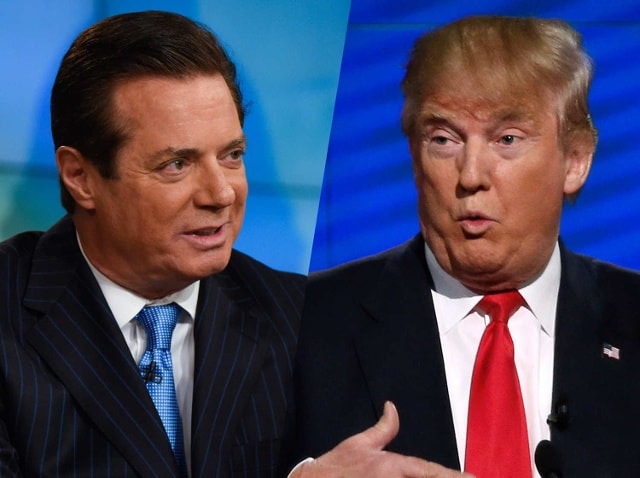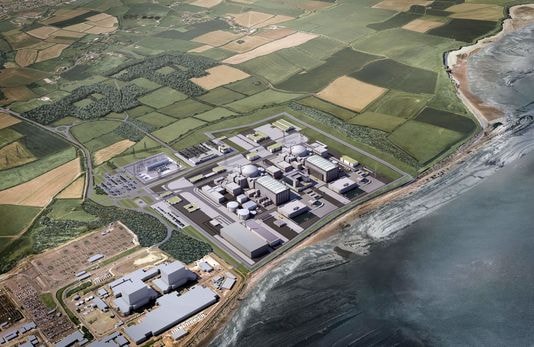Honored guest or uninvited guest?
(Baonghean) - Cooperation between countries in the world in economics, military, and even politics is quite common nowadays. However, foreign guests are not always welcomed, especially when there are many disagreements within the host country.
Trump and Putin from the Democratic perspective
 |
| Paul Manafort (left) used to work for the former pro-Russian President of Ukraine and is now an advisor to Donald Trump (right) running for the US presidency. Photo: Internet. |
Donald Trump - the "unprecedented" candidate for the US presidency recently stirred up the country's political scene when he said: "Russia, if you can hear me, I hope you can find the 30,000 missing emails", referring to the scandal of Mrs. Clinton's use of a personal email address while she was Secretary of State. The Democratic Party once again raised suspicions about the unusual relationship between the American tycoon and Russian President Putin.
Previously, when Clinton's campaign manager - Robby Mook - accused WikiLeaks of publishing internal Democratic Party emails "provided by Russians to help Donald Trump gain an advantage".
Mr. Trump immediately mocked that the hypothesis put forward by the Democrats was “a farce.” Obviously, this did not please his opponents. But it was only when the tycoon boldly “called” for Russia to “jump into” the US presidential campaign that the politicians who opposed him had the opportunity to “retaliate.”
Clinton's adviser stressed: "This is the first time a presidential candidate has actively encouraged foreign powers to spy on his opponent's campaign," and that this is "a matter of national security."
Even current President Barack Obama responded on NBC on July 27, saying: "What we know so far is that the Russians have been spying on our systems, not only government systems but also private systems."
“I also know that Donald Trump has repeatedly expressed his admiration for Vladimir Putin,” he added.
To prove that the allegation about the relationship between the American tycoon and the Russian President is not an emotional argument, the Democrats presented “evidence”: Mr. Trump’s main advisor in this election campaign was Paul Manafort, who had advised former President Viktor Yanukovych. The US and its allies have always believed that the overthrow of this pro-Russian President was one of the reasons for the Crimea crisis.
Another time, Mr. Trump spoke about NATO and suggested that the terms of the Treaty need to be reviewed, which also gave the Democrats an opportunity to reinforce the above accusation. Specifically, Trump argued that Article 5 of the Treaty (“an armed attack on one member country is considered an attack on all members”) leads to an inequality in financial responsibility. He gave an example: if he were the President of the United States and in the case of Russia attacking the Baltic countries, he would determine whether these countries have fulfilled their financial obligations to the Treaty before deciding whether to intervene militarily or not.
New British Prime Minister "suspends" French nuclear power project
 |
| Construction site of the Hinkley Point C nuclear power plant in the West of England. Photo: Internet. |
On July 28, EDF announced its agreement to build the giant Hinkley Point C nuclear power plant. This is a project located in the west of England and is expected to become the most important project in the field of nuclear energy in the foggy island nation. If completed, Hinkley Point C is expected to provide 7% of the total electricity consumption of the UK in the next few decades.
EDF’s decision came after months of hesitation and controversy. However, the irony is that when EDF gave the green light, the British government gave the yellow light, announcing that it would extend the review period before approving the project.
In fact, this “phase difference” comes from the change of power in the UK after many recent events. While former Prime Minister David Cameron supported the project with EDF, new Prime Minister Theresa May is not very interested.
The new Secretary of State for Trade and Energy, Greg Clark, announced: “The government will carefully analyze all aspects of the project and make a decision early this autumn.” This announcement left EDF “bewildered” because everything seemed to be in place, when the Director of EDF’s branch in the UK was ready to go on a trip to sign the contract.
Why is Britain so hesitant about such a major energy project? The root cause lies in EDF’s contract partners. Once Hinkley Point C is completed, Chinese energy giant CGN will automatically take a 33.5% interest in the plant and will also be allowed to build another plant in the UK.
If Cameron were still in office, perhaps these binding commitments would not be so worrying, because he himself has the ambition to turn Britain into an investment bridge between China and Europe. That is not the case with Mrs. May, and in fact, the opposite is true.
The new British Prime Minister has a rather tough stance on investment from China: "China wants to use money in exchange for Britain's silence on human rights violations."
For now, it is still unknown whether this project will receive a “red card” from the UK or not, but the extension of the approval review period by the UK government will certainly make EDF “sit on fire”. Because this is a “huge gamble” project that EDF only dared to invest in after much deliberation.
Hai Trieu
(According to Le monde)
| RELATED NEWS |
|---|
